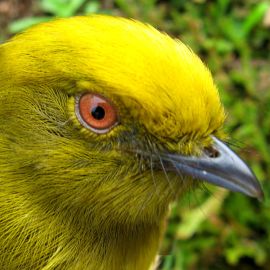
by Erika Zambello
In November 2016, Colombia’s congress approved a historic peace deal after a 52-year conflict with the Revolutionary Armed Forces of Colombia (FARC). For decades, the presence of armed groups prevented…
Read more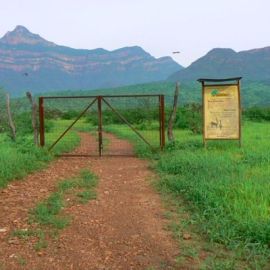
by Maddie Southard
Named for the mountain that dominates the landscape, the Chaparrí Conservation Area is located about 50 miles east of the Pacific coast in northern Peru.
Read more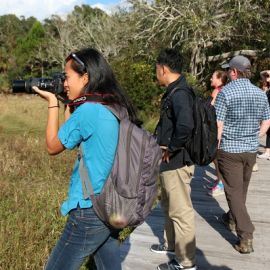
by Erika Zambello
I disembarked at Guana Tolomato Matanzas National Estuarine Research Reserve (mercifully abbreviated to GTM NERR) with a group of practitioners, researchers and ecologists from around the world. The group…
Read more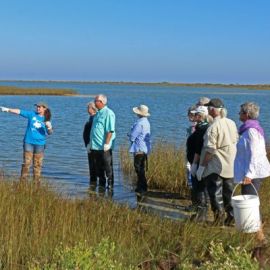
by Erika Zambello
Apalachicola Bay has long been famous around the world for its thousands of acres of oyster beds. In fact, in the past, 90 percent of Eastern oysters served in Florida were from Apalachicola.
Read more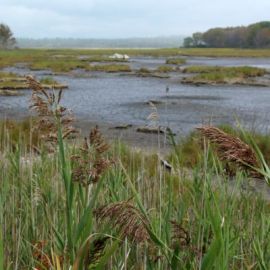
by Erika Zambello
Wells Reserve on the coast of Southern Maine was designated in 1984 and encompasses 1,600 acres. The reserve staff facilities sit within beautifully restored farm buildings.
Read more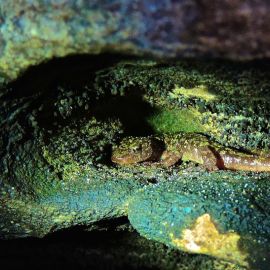
by Wally Smith
This is the case with the green salamander, one of the most unique amphibians in the salamander-rich Appalachian Mountains. The only truly green-colored salamander in eastern North America, the green salamander…
Read more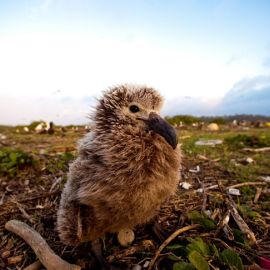
by Terence Hyland
Perspective can dictate what we see. A visitor to Guam or Easter Island may see sandy beaches or breathtaking seascapes, but a local may see an endless tide carrying plastic bottle caps and spent fishing…
Read more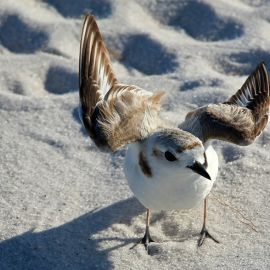
by Erika Zambello
For those who bird on the Emerald Coast, Snowy Plovers are a relatively common sight on Okaloosa Island – once you walk away from the more crowded beach access points. Less than seven inches long and lighter…
Read more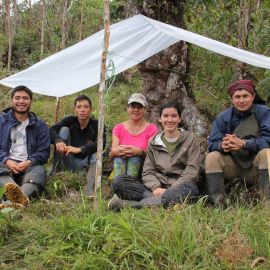
by Natalia Ocampo-Peñuela
I wake up at 4:30 a.m. in my tent and go out to admire the dark, cloud-covered forest. I meet with my team of locals to warm up and discuss our plan of action. Over a nice cup of Colombian coffee, we sit…
Read more
by Barbara Fraser
When it comes to wildlife protection, the most photogenic species — such as polar bears, dolphins and pandas — seem to attract the most attention and conservation dollars.
Read more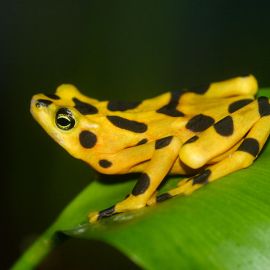
by Georgia Woodroffe
Over the last 500 million years, Earth has experienced five mass extinctions. Each was marked by the obliteration of a significant proportion of all life on the planet within a geologically insignificant…
Read more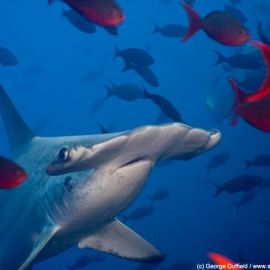
by Brad Nahill
When many people hear the words shark and tourism in the same sentence, the first thing they think of is how to avoid these creatures of the deep. The second thing is the ubiquitous image of a small diver…
Read more
